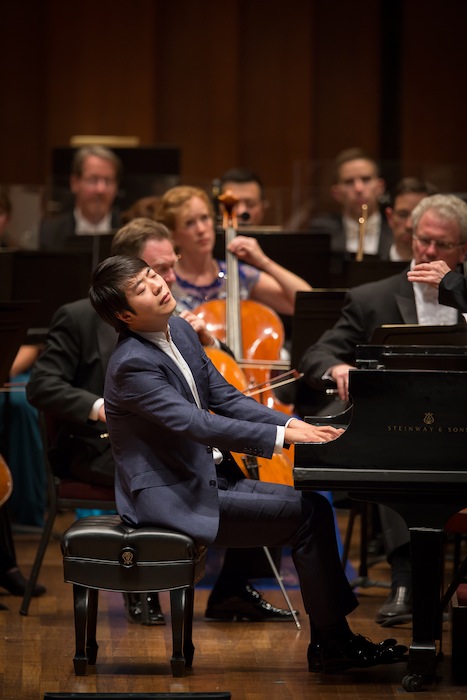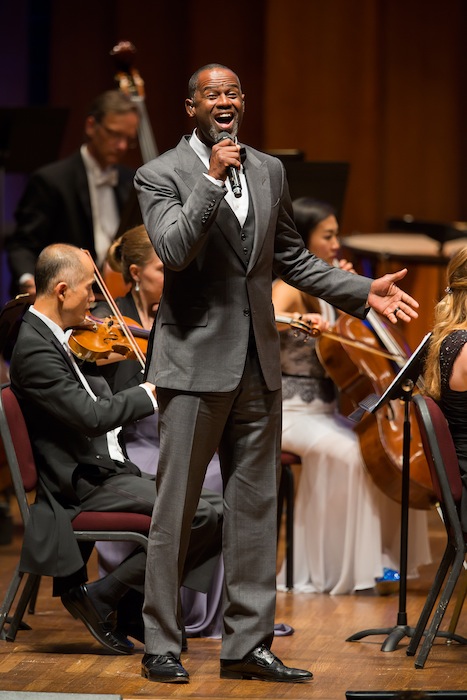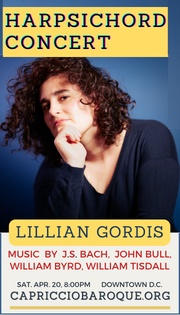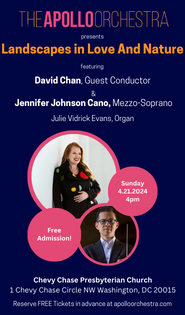NSO gala raises $1 million and fetes opening of African-American Museum

Lang Lang performed Rachmaninoff’s Piano Concerto No. 1 with Christoph Eschenbach and the National Symphony Orchestra at Sunday night’s gala concert at the Kennedy Center. Photo: Scott Suchman
This weekend the first visitors entered the National Museum of African American History and Culture on the National Mall. President Obama presided over the opening ceremonies, as the dream of this new building in the Smithsonian Institution became a reality.
The event happened to coincide with the season-opening gala held every year to raise funds for the National Symphony Orchestra. On Sunday evening in the Kennedy Center Concert Hall, jewels glittered and gowns dazzled as patrons donated over $1 million to the NSO’s musical and educational activities.
The orchestra played some music, too. Christoph Eschenbach led the sort-of traditional gala fare expected on such occasions. The orchestra first fired off Dvořák’s Carnival Overture, which was among the pieces the composer conducted at his first concert in New York in 1892. It opened with a blast of blazing sound set at a brisk tempo. As Eschenbach’s tempos tend to be, it was possibly faster than it really needed to be, but the effect was impressive. The more reflective sections, with their folk music-inspired melodies, provided some space to catch one’s breath but did not interrupt the raucous fun for long.
The NSO remains in excellent form, toned over the years by Eschenbach and his leadership of three international tours. (A fourth tour, this time to Russia, is planned for March 2017.) Eschenbach has tended to feature younger musicians as his protégés in these gala concerts over the years. As it turns out, pianist Lang Lang was one of the stars of Eschenbach’s first NSO season opening gala in 2010. As Eschenbach began what will be his final season with the NSO, he turned again to Lang Lang, who took the solo part in Rachmaninoff’s First Piano Concerto, Op. 1.
It was at least good not to hear the composer’s more frequently performed Second or Third Concerto, although one has to go back only to 2012 for the last time the NSO played this work. Lang Lang’s innate theatrical instincts served the piece well from the first measures, as he gave a broad, massive sound to the opening display of octaves. One could certainly not complain of any technical shortcomings in his performance, and he gave a sort of dreamy shading to the wistful parts of the concerto.
What one missed was the crafting of rarified sound, as in the first movement’s cadenza, for example, where there was no delectation in his touch at the keyboard. It was pensive but somehow not inspiring. Eschenbach helped the NSO give a wide berth for his soloist to add expansive rubato, and he whipped the orchestra into a frenzy of stormy sound when it was needed. The horn solos in the second movement were lovely, and the finale had a pleasing quicksilver quality.
In recent years Eschenbach has shared the season opener with NSO Pops conductor Steven Reinecke. This arrangement has a certain appeal for a gala audience, and this year half of the concert was devoted to music by African- American composers and featured a number of African American vocal soloists. (One could have also made such a tribute with the classical half of the evening instead, but that is another story.)

Brian McKnight performs at Sunday’s NSO gala. Photo: Scott Suchman
Adolphus Hailstork’s Fanfare on Amazing Grace served the same function as the Dvořák piece on the first half, a peppy orchestral romp out of which strains of the familiar hymn rose periodically. Jazz vocalist Nnenna Freelon was at her best in Bob Freedman’s smoky arrangement of the song “Black Butterfly,” associated with the ensemble of Duke Ellington, favorite son of Washington, D.C. In an admirable tie-in, Freelon acknowledged her husband, Philip Freelon, who is one of the lead architects in the firm that designed and built the National Museum of African American History and Culture.
Amplification is the key to a good sound in this sort of music, but the levels sounded off in Nat King Cole’s “Straighten Up and Fly Right,” which combined Freelon with the a cappella group Take 6. The vocal sextet, however, were up to their usual standards in a heartfelt rendition of Helen Taylor and May Morgan’s “Bless This House,” arranged by former Take 6 member Cedric Dent. Singer-songwriter Brian McKnight had a beautiful high range, heard in his own hit “Back at One.”
Mervyn Warren, another former member of Take 6, composed the ten-minute finale to the evening, We Are All America, heard in its world premiere. Commissioned in celebration of the opening of the new museum, the piece featured all of the evening’s vocalists, mostly singing in unison. The orchestration by Sam Shoup wove in snippets of “America the Beautiful,” and with the arrival of the Washington Performing Arts Children of the Gospel Choir in the final minute, contributed to a successful, feel-good extravaganza.
Edward Gardner opens the National Symphony Orchestra’s subscription season with Elgar’s Falstaff, Walton’s Suite from Henry V, and Tchaikovsky’s Romeo and Juliet 7 p.m. Thursday and Friday and 8 p.m. Saturday. kennedy-center.org






